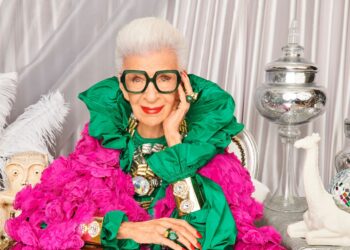Adrian Ross left Colorado State University as the 4th all-time sacks leader graduating with a degree in Animal Science. Playing all linebacker positions for the Cincinnati Bengals for 6 years, Adrian proved to be one of the hardest hitters and leaders in the NFL.
As an adult with years of life experiences and lessons behind him, Adrian Ross is determined to pass this knowledge on to the next generations and arm them with the tools they need to surpass all of the obstacles that lay in their own paths. As the owner of 3D Sports & Entertainment, Adrian now helps future athletes reach their own dreams both on and off the field, and teaches them integrity in the process.
In 2013, Adrian became an NFLPA Certified Contract Advisor. Fulfilling a short time dream to become an NFL agent, Adrian is poised to help players to achieve their longtime dream of NFL success. Adrian Ross currently represents Tyrunn Walker a defensive tackle on the New Orleans Saints. Adrian Ross supports our youth and sports legends in the making. By doing so, he helps to create in them the same passion he has for his own future and causes them to wake up to see all of the possibilities before them and make their own dreams a reality.
Amy Wesley: Who is Adrian Ross?
Adrian Ross: The son of two educators. Father’s an administrator, a principal, and a coach. Mother was and is a teacher. Good student and “okay’ athlete. They instilled God and hard work in my life. I was super intelligent. Went about everything as if it were school. I obtained more knowledge. I am a Philanthropist, because of my parents, and I like to give back what’s been given to me.
AW: How have you being in the NFL prepared you for your life as a sports agent? Did any specific experiences other than you being a player, help lead you down this path?
AR: Going through the process as a player helped prepare me. I had to hire two or three agents myself. Parents and the kids out of college don’t know what an agent is. The player is signing the agent just like they would a real estate agent. We facilitate the contract between the player and the NFL team.
A lot of players think it’s the agent’s job to promote them because of movies like Jerry McGuire, but you have to be on a team to be promoted. The NFL has its own guys to find players. The agent is only facilitating the contract. The team has to want the player, whether the team knows the agent or not.
AW: How hard was it to make that transition? On one hand you can relate with your clients since you were a player yourself, but now you’re talking about money and being able to set your clients up financially for life. What things did you have to work on personally to make that happen?
AR: The transition was very easy because I did it as a player. As an agent, you help sign your guys. I got my first shoe deal with Addidas, set up my own endorsements (car deals, radio shows, events at the playboy mansion, celebrity basketball games in Sacramento) told my agent what I wanted in my last contract. How I wanted my last contract is a standard of how contracts are done in the NFL now.
AW: Tell us more about your involvement in Youth Of The Nation Apparel.
AR: I helped launch the Youth of the Nation Apparel in 2014, and we created that to be another fundraising system that schools could turn to since a lot of the funding for schools was being cut. And many of the school fundraisers are unsuccessful or sometimes the children sell unhealthy snacks or candy. We go into schools and meet with activity directors or athletic directors. Students create a design and we make hoodies, t-shirts, etc. for the kids to sale. Using the power of the students to create the designs. They go out and sale the product. The school determines which department receives the funding.
AW: You’re on the board for the Positive Coaching Alliance, where it’s a program focused on changing the culture of youth sports, and spreading a little positivity in helping to build up children’s character. How has this experience translated into some of the other initiatives you work on?
AR: We use sports to educate the youth about the value of a good education and never quitting. There are certain people that teach the game but not in a positive manner. I really wanted to be on the PCA board on the youth level. Most of them aren’t going to go on to be professionals in a sport, but we teach them core values they can use throughout life.
AW: Are you a big proponent for college athletes being paid? Reasons why? What kind of system would you recommend?
AR: Yes and how I view it is “shouldn’t you get paid for working?” The thinking now is that because you’re a student on a scholarship, you shouldn’t get paid. Disney channel kids get paid. High school actors get paid, the Gerber baby gets paid, McCauley Culkin got paid. The attack should be on the word “amateur” and if you receive money for playing a sport you can no longer attend school.
The attack should be on the word “amateur” and if you receive money for playing a sport, why is it that you can no longer attend school?
I was a walk-on at Colorado State, so no one paid my scholarship. The third party that makes the money that has sold the athlete’s rights should pay the students, not the school. Now that there are all these channels for sports and people are paying for entertainment, the athletes are still not getting paid.
Before television, the school was generating money through the parking and concession so it was pretty much an even exchange. The Heisman trophy winner wins 150 million dollars for the school. That’s why schools spend thousands of dollars on Heisman campaigns. Does any of that money go to the Heisman trophy winner? Of course not.
A system is in place to pay everyone for their value. The little league world series is aired on ESPN. The announcers are getting paid. Mark Zuckerberg was a student and created Facebook and he got paid.
I don’t know what system I would use to implement these changes, but I fully support the movement.












